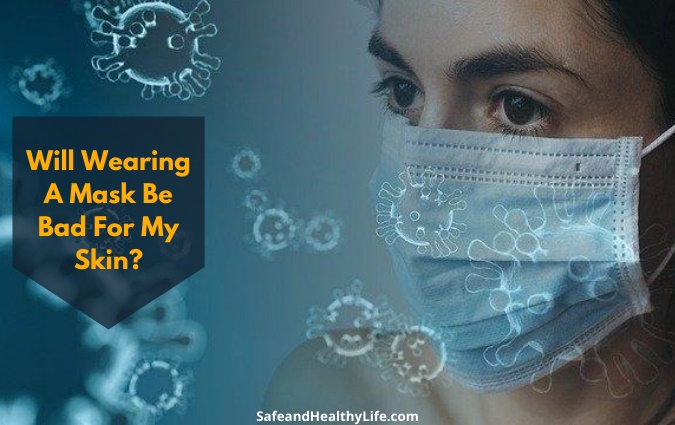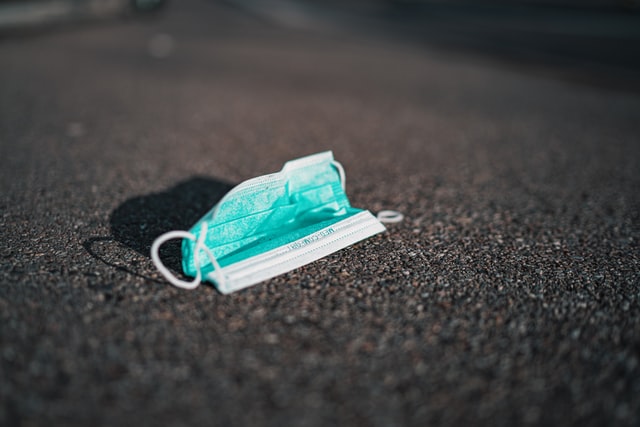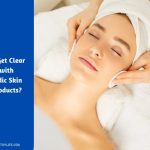
As we approach the sixth month of the Coronavirus pandemic, the hottest topic on everybody’s lips is face masks. The nation seems divided on whether we should be wearing one or not.
Despite the guidance by the Centres for Disease Control and Prevention (CDC) and World Health Organisation (WHO), both advocating the use of face-coverings to prevent the spread of COVID-19, many US citizens are against this. But do they have a due reason?
We talked to a dermatologist Dr Rajkomar to understand the impact a mask or face covering will have on your skin and the rise of the new term ‘Maskne’.
Why are we being asked to wear face masks?
In an editorial published on July 14th in the Journal of the American Medical Association, the CDC affirms that face coverings are a critical weapon in the fight against COVID-19.
However, there are still conflicting views on face masks, with some still strongly believing that the effectiveness of masks isn’t proven widely enough, therefore should not be enforceable under US law. So as US citizens, it is hard to know whether we should be wearing them or not.
As research has shown that masks or cloth coverings can help limit the spread of infection by preventing people who unknowingly have COVID-19 spreading the disease to others, there are many factors influencing the decision to wear a face mask or not and one worry includes the impact it will have on the skin.
Can wear a mask lead to skin breakouts?
You might have heard of the term ‘maskne’ or ‘mascne’ spiralling across the internet in recent weeks.
As hospital staff have had to wear face-coverings since coronavirus came into fruition, those staff members have particularly acknowledged that the skin is breaking out due to wearing a face covering.
In this article, we spoke to Consultant Dermatologist – Vikram Rajkomar who explains top tips of preventing so-called ‘Mascne’:
“Acne is caused by overproduction of sebum by the sebaceous glands. Wearing a tight-fitting face mask could mean that sebum and sweat remain in close contact to the skin, akin to wearing heavy oil-based makeup. This combination increases the risk of acne or breakouts.”
For those of us who suffer from hormonal breakouts on the chin or nose, worrying about how the skin will react to a face covering can be concerning. But does the benefits outweigh the ‘spot drawbacks’ and Iis this reason enough to avoid wearing a mask all together?
Preventing breakouts caused by masks

Photo by 🇨🇭 Claudio Schwarz from Unsplash
Luckily, there are steps we can take to prevent acne flare-ups and breakouts, even for those of us who have an allergy to face masks. Dr Rajkomar suggests:
- Ensure that the skin is well hydrated, by drinking enough water and using a fragrance-free moisturiser to the skin to avoid direct rubbing of the mask with the skin.
- Wash the face twice per day with a gentle wash and avoid facial scrubs or exfoliating which can damage the skin.
- Wash the mask regularly as they can accumulate sebum and face oil (including makeup) which leads to the development of acne.
- If acne is already present, constant rubbing with a face mask will worsen the inflammation, so avoid a tight mask.
- Some people can react to face masks and the use of a mild steroid such as hydrocortisone may be sufficient. Seek advice from your doctor if you think this may be the case.
“Wearing a mask is vital to stopping the spread of the disease so ensure you follow the government advice on wearing face masks. However, be sure to remove masks when they’re not needed, for example, in an empty room or in the car.”
What daily changes can I make to avoid breakouts
Simple changes to your day-to-day life can limit the number of breakouts you experience.
Continue using sunblock as the exposed areas of the face still require protection. Eat a well-balanced diet, with low glycaemic index food.
Avoid food which increases blood sugar quickly, such as white bread, white rice, sugary drinks and cornflakes, all of which can be linked with increased risk of acne.
And, for the men?
If you’ve grown a beard during the lockdown, you may be more at risk of skin issues. Dr Rajkomar explains:
“Beards can lead to folliculitis (inflammation of the hair follicles) which appears similar to some acne lesions. Having a beard means that it is more difficult to clean the face properly, leading to accumulation of sweat, sebum, debris and bacteria and hence the development of acne”
Keep your beard clean with a mild beard wash – anything too harsh will strip your skin of its natural oils.
Will wearing a mask be bad for my skin?
The answer is, you may be more prone to breakouts thanks to wearing a mask, but the benefits of wearing one to help stop the spread of COVID-19, well outweigh the negative of a few spots.
By following the recommendations of Dr Rajkomar, hopefully, your breakouts can be contained and ‘Mascne’ or ‘Maskne’ won’t even be a problem.
About The Author:
Dr Vikram Rajkomar is a highly experienced Consultant Dermatologist, who treats both adults and children at Pall Mall Medical – a family-run private healthcare provider focussed on delivering healthcare services that meet patients’ needs and help them to thrive and live longer, healthier, happier lives.
Dr Rajkomar is a highly skilled & reputable dermatologist, available for all adult and paediatric private dermatology needs.




